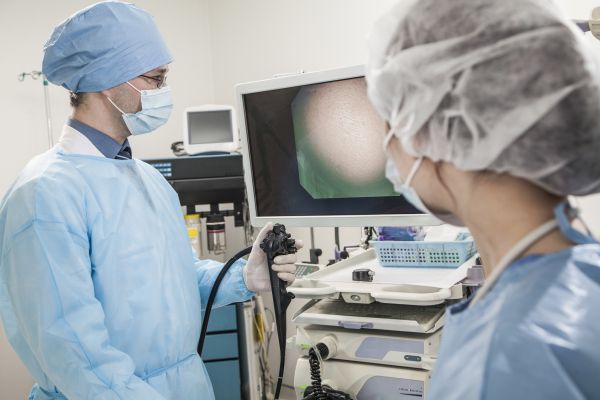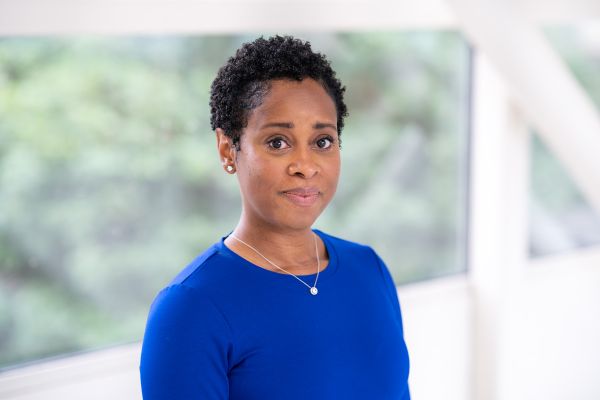Every cancer has a day, week or month to drum up awareness and provide educational opportunities to help people understand their risk. October is the time for all things pink for breast cancer awareness, for example.
April is Minority Cancer Awareness Month, a full 30 days dedicated to reminding people of color that they have a higher risk of cancer in general. “Cancer education, and people’s risk of cancer, always has to be a topic of conversation; it always has to be relevant,” says Nikia Clark Robinson, a Community Relations Coordinator and Program Coordinator with Roswell Park Comprehensive Cancer Center’s Office of Community Outreach and Engagement. “Our mortality rates are still higher than any other ethnic or racial group. There’s still distrust in healthcare settings that could prevent people from getting regular screenings. There’s still not enough talk between people and their doctors. There are still screening guidelines that aren’t being adhered to. People in the Black and Hispanic/Latinx communities need to have as much support as possible.”
Black Americans have the highest mortality rate of any racial and ethnic group in the country across all types of cancer and for all cancers combined. Black men are twice as likely to die from prostate cancer and have a lower five-year survival rate for most cancers than other men. Black women have the same risk level for developing breast cancer but are 40% more likely to die from the disease.
“We know that Black women stop their treatment four to six weeks earlier than white women. Our most vulnerable women are having the worst outcomes and the highest mortality rates and aren’t even finishing treatment. Delaying by a month or a month and a half might not seem like a big deal, but with cancer treatment, it’s significant,” Nikia says. “You need to finish your treatment. If you peel back the layers to look at the data in real life, we want to know why that is — are they not being supported? We also know that Black or Hispanic/Latinx men are more likely to get lung cancer. If you’re Black, you’re prone to have worse outcomes from lung cancer if it’s not caught in the early stages. There’s also a stigma around lung cancer that we need to overcome.”
Volunteers help keep people on track
Part of the difficulty in providing information about the importance of screenings might be where the message is coming from. Bobbie Brown worked as a nurse’s aide at Buffalo General Hospital for a number of years and now serves as a volunteer for Roswell Park and is part of Nikia's outreach team, setting up meetings, providing trainings and teachings and talking with people in her community about their cancer risks.
“We need to get more awareness out there to explain to people that it’s OK to go to the doctor,” Bobbie says. “We need more awareness of going to the doctor, why it’s important to keep your appointments, making those appointments for colonoscopies because of the higher rates among people of color. If you see anything different, if you’re feeling anything different, then you need to tell your doctor. People are scared sometimes. Some don’t want to go see their doctor because they know they haven’t been in a while, and if there’s something going wrong, they don’t want to hear it. But we have to keep pushing.”
Bobbie says she is known in her community as someone who is very vocal about the importance of taking care of your health, a message she takes to her neighbors, community centers and anyone who will listen. It works: She recalls one woman who “kept showing up” to various health discussions but admitted she had gone several years without a checkup at a gynecologist’s office. When the woman finally went to the doctor, she was diagnosed with stage 3 uterine cancer. “She finally got the treatment she needed. She knew somebody who lives where I live, and when she saw me, she came over and hugged me.”
Know your risk
Take the personal assessment to determine which screening tests you need, from the experts who know cancer best.
Our commitment to the community
Roswell Park also has adopted and expanded a patient navigator program in which people work with patients and prospective patients to make sure all appointments are attended and follow-ups are completed. “We can do all the outreach and getting the awareness out there, but we need our navigators and volunteers. Patient navigators are from traditionally underserved communities, historically minority communities, and they’re bilingual – that’s extremely important,” Nikia says. Navigators look like people in the community they’re serving, an acknowledgment of the fact that people will relate and respond more to people who look like them and share, or appear to share, a common background and way of viewing the world. Navigators help to make sure people get the screenings and care they need and provide a compassionate but steady reminder that cancer screenings and doctor appointments are critically important to protecting a person’s health, Nikia says.
“We have volunteers who are Spanish speakers, women, men, and people of color,” Bobbie adds. “We are all human. We need people from all colors and backgrounds. There’s a saying I have: ‘You must do what you’re preaching.’ People are scared. They’ve never had a colonoscopy. I tell them, ‘I’ve had this done. It’s simple.’ We are at high risk. I’m on their level.”
As a reminder, here is the general advice for when people should start to have regular cancer screenings if they are of average risk. People at higher risk of developing certain cancers, including breast and colorectal cancer, may need to begin these screenings earlier:
- Breast: Mammography for women age 40 to 70 (frequency depends on risk factors)
- Cervical: Pelvic exam, Pap test and routine HPV testing for women age 21 to 65
- Colorectal: Colonoscopy for men and women age 45 and older
- Lung: Low-dose CT scan for men and women age 50 and older with more than 20 pack-years of smoking history and have smoked in last 15 years
- Prostate: Digital rectal exam, counseling about PSA early detection and PSA testing (if desired) for men age 50 and older; for Black men, screening should begin at age 45 due to increased risk
- Skin: Full-body skin check for patients with any suspicious lesion



